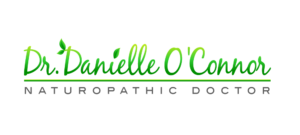Obsessive compulsive behaviour, anxiety, terror, phobias, tics, irritability, mood swings, developmental regression, sleep problems, and hallucinations are all symptoms of PANDAS, a crippling neuropsychiatric disorder that emerges unexpectedly in childhood. This variety of symptoms are thought to be brought on by an autoimmune reaction to a Group A streptococcal infection. However, the precise aetiology and the processes underlying the heterogeneous picture of this illness are still unknown. A growing body of research is highlighting the connection between poor gut health and immunological, psychological, and neurological problems all associated with PANDAs. Since the gut microbiome is always in flux, it becomes a great target for treatment. Currently, antibiotics and mood stabilisers are the first-line therapy for PANDAS, but some people do not respond well to these forms of treatment.
After an initial clinical assessment including a comprehensive intake and lab testing, your treatment approach should include addressing the child’s health and not just behavioural therapies.
A natural approach to support for PANDAs includes:
1. Digestive Support – addressing any imbalance in gut microbiota is a foundational step in any neuropsychiatric support due to the gut-brain connection. In addition to positive strep titres we often see other opportunistic pathogens show on testing (Comprehensive Stool Analysis and/or GI-MAP). These can be bacteria, parasitic, viral or fungal in nature. Based on results, treatment including berberine, neem, olive leaf extract, vitamin A and other antimicrobials are recommended.
Urinary heavy metal tested is suggested to assess for presence of a biofilm which can make treatment with antimicrobials more difficult. In this case, biofilm disruptors including DMSA, ALA, EDTA and detox support like glutathione and NAC will be used.
Ensuring proper gut function and transit is important at this time for optimal elimination. If constipation is an issue, it must be addressed immediately. The most gentle and easiest approach is to use magnesium to encourage faster transit time. At the same time, maldigestion and malabsorption due to possible opportunistic microbes needs to be addressed by restoring proper digestion with the use of digestive enzymes, retain Hal, apple cider vinegar, and other similar enzymes.
Probiotics and prebiotics will also be important after the use of antimicrobials, as well as the use of repair supplements in order to restore the integrity of the gut mucosa and give support to healthy gut lining cells. Specific probiotic strains including Lactobacillus rhamnosus, L. casei, Bifidobacterium bifidum, B. long, B. breve and Saccharomyces boulardii are important as well as repair support including L-glutamine and zinc carnosine.
2. Diet – ensuring a healthy and clean, nutrient dense diet is important as to eliminate any further inflammation in the body. Including vegetables, high quality protein, and healthy fats will be first line therapy for a PANDAs diet. Eliminating simple sugars including carbohydrates and high glycemic fruits will help with cortisol control, insulin control, and decrease the availability of fuel to opportunistic bacteria.
Foods to include in the diet: (if the food is not on the list, you should not eat it)
- Almonds, including almond butter and oil
- Apples
- Apricots, fresh or dried
- Artichoke, French
- Asiago cheese
- Asparagus
- Aubergine (eggplant)
- Avocados, including avocado oil
- Bananas (ripe only with brown spots on the skin)
- Beans, dried white (navy), string beans and lima beans properly prepared
- Beef, fresh or frozen
- Beets or beetroot
- Berries, all kinds
- Black, white and red pepper: ground and pepper corns
- Black radish
- Bok Choy
- Brazil nuts
- Broccoli
- Brussels sprouts
- Butter
- Cabbage
- Capers
- Carrots
- Cashew nuts, fresh only
- Cauliflower
- Cayenne pepper
- Celeriac
- Celery
- Cherries
- Chicken, fresh or frozen
- Cinnamon
- Citric acid
- Coconut, fresh or dried (shredded) without any additives
- Coconut milk
- Coconut oil
- Collard greens
- Courgette (zucchini)
- Coriander, fresh or dried
- Cucumber
- Dates, fresh or dried without any additives (not soaked in syrup)
- Dill, fresh or dried
- Duck, fresh or frozen
- Eggplant (aubergine)
- Eggs, fresh filberts
- Fish, fresh or frozen, canned in its juice or oil
- Game, fresh or frozen
- Garlic
- Ginger root, fresh
- Goose, fresh or frozen
- Grapefruit
- Grapes
- Haricot beans, properly prepared
- Hazelnuts
- Herbal teas
- Herbs, fresh or dried without additives
- Honey, natural
- Juices (freshly pressed from permitted fruit and vegetables)
- Kale
- Kiwi fruit
- Kumquats
- Lamb, fresh or frozen
- Poultry, fresh or frozen
- Prunes, (dried without any additives or in their own juice)
- Pumpkin
- Quail, fresh or frozen
- Raisins
- Rhubarb
- Seaweed fresh and dried (once Introduction Diet
- has been completed)
- Shellfish, fresh or frozen
- Spices, single and pure without any additives
- Spinach
- Squash (summer and winter)
- String beans
- Tangerines
- Tea, weak, freshly made, not instant
- Tomato puree, pure without any additives apart from salt
- Tomato juice, without any additives apart from salt
- Tomatoes
- Turkey, fresh or frozen
- Turnips
- Vinegar (cider or white); make sure there is no allergy
- Walnuts
- Watercress
- White navy beans, properly prepared
- Zucchini (courgette)
3. Address detoxification – toxicity and the body’s ability to detox is a major component of supporting your child. Clearing toxins will not only help support the reduction of neuropsychiatric symptoms, but can also decrease OCD and tic behaviours. By controlling the overacting immune response that triggers inflammation and neuropsychological symptoms, we see a calming of the body and the brain. Herbals such as milk thistle, dandelion, spirulina, curcumin and burdock can be beneficial for supporting the detox pathways, whereas nutrient support like glutathione and NAC are essential for detox function.
4. Mitochondrial support – PANS and PANDAs kids often have weakened mitochondria, causing fatigue and compromised immune defense. Assessing for function using an Organic Acid Test (OAT) can show some underlying biomedical pathways that have functional weaknesses. Using Acetyl-L-Carnitine, CoQ10, and specific B vitamins can help support mitochondrial function.
Navigating the world of PANDAS can be very difficult and frustrating. Looking for support, contact Dr. Danielle ND for an appointment.





